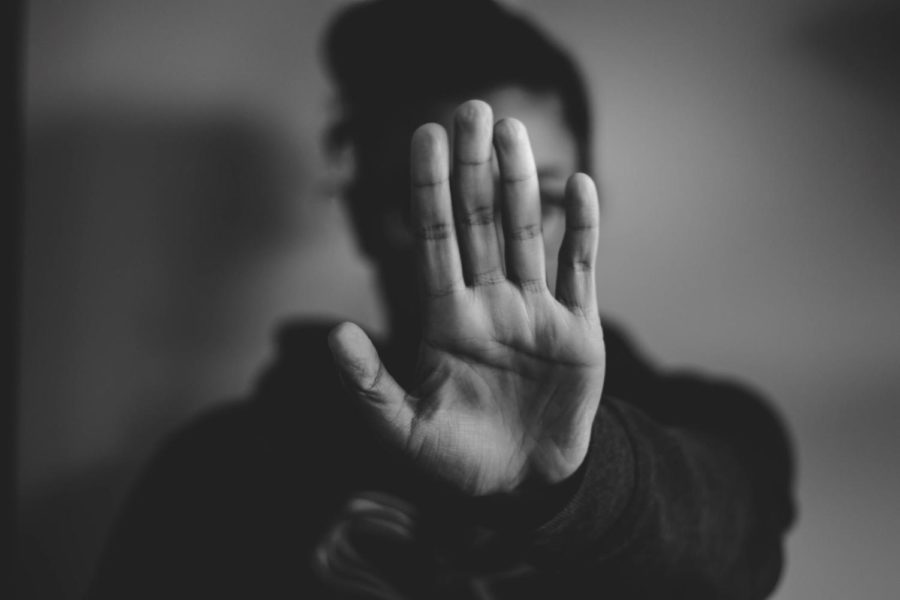Haueter: The purity culture to victim blaming pipeline
Courtesy of Nadine Shaabana/Unsplash
Human trafficking victims are of all different identities and backgrounds, according to Michael Ferjak, a retired law enforcement professional with over 40 years of service.
January 20, 2022
Content warning: this piece contains mentions of sexual assault.
I transferred to Iowa State from a small, private, Christian, conservative university. When I tell my friends from Iowa State about some of the rules we had to follow, they can’t help but laugh.
For example, we were:
- Required to attend chapel.
- Not allowed to drink, even if you were 21.
- Supposed to adhere to a dress code.
- Not allowed to live off campus unless we were over 21, married or living with our parents.
- Not allowed to have boys in our dorms after 8 p.m., and if we had a boy in our room, we had to keep the door open.
- Not allowed to be sexually immoral in any way — including identifying as a member of the LGBTQ+ community.
- Not allowed to swear.
Violating any of these rules could result in our removal from the university.
These rules are funny to laugh about if you aren’t accustomed to that environment, but for some people, they are all we know. Before I attended that school, I had been in a private, Christian school my entire life. These rules weren’t crazy to me while I attended the school because they were what I knew growing up.
Some of these rules don’t seem like that big of a deal. It’s your choice to attend that institution, and you know what you’re getting when you sign up to attend. Whether the rules are ethically correct is another argument, but the reality is that a lot of the students there have no problems with those rules.
For a while, I didn’t have any problems with those rules because I was ignorant.
The first thing that I took issue with while a student there was the blatant discrimination against those in the LGBTQ+ community. A few of my close friends identified as members of that community, and it hurt me to see them suppressing who they felt they were just so they wouldn’t get kicked out.
After a bit, I realized I didn’t feel great about the rules, but they didn’t really affect me. I didn’t drink; I didn’t have a boyfriend. I just didn’t really care — until a boy did come into my life and until I did have a drink.
He convinced me to have a drink — just one, and he would take care of me.
We have very different versions of what “taking care of me” looked like.
I convinced myself that it was my fault. I was the one being sneaky and drinking with a boy alone in my room with the door locked.
I was told that it was my fault by people associated with the school. A counselor told me that I made those decisions, so I brought it upon myself. My upbringing made me inherently feel like it was my fault.
I couldn’t tell my friends because they couldn’t know that I drank. I couldn’t tell my family for the same reason. I couldn’t tell the school because I was afraid that I would have risked my status as a student if they had known.
The school now has a task force to help protect survivors and eliminate the victim-blaming that happens in environments where purity culture is central. This is a great step, but it’s too little, too late. I am not alone in my experience. Plenty of individuals have had similar experiences of their assault not being taken seriously or even being covered up.
Let’s talk about it some more and create conversation. As someone who still identifies as a Christian and feels strong in their relationship with Jesus, I have a message for my fellow Christians: stop encouraging the purity culture to victim blaming pipeline. Your unwillingness to talk about the subject also perpetuates that pipeline.
My assault was not my fault. Survivors are never to blame for the actions of perpetrators that should and often do know better.







